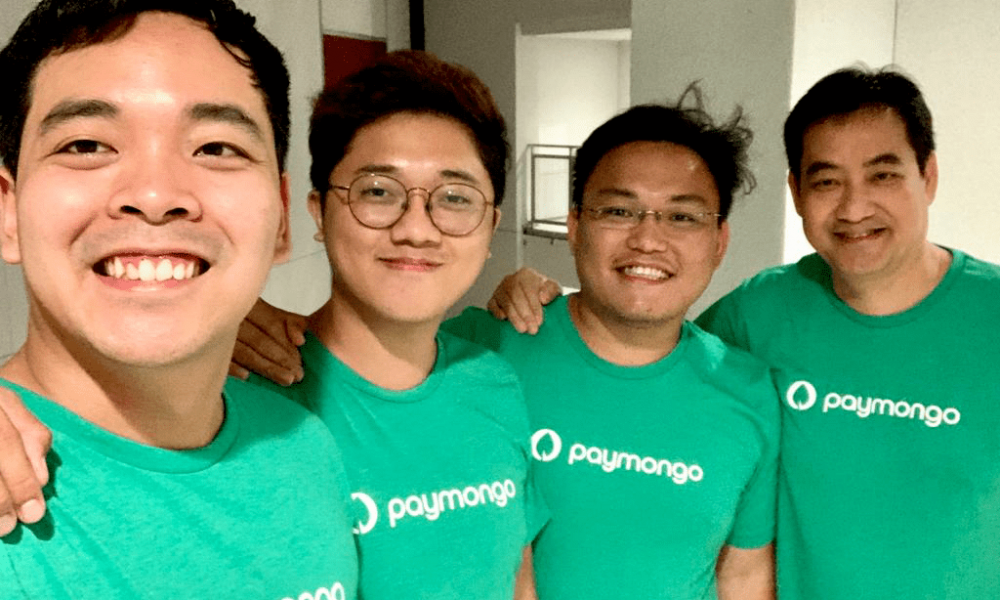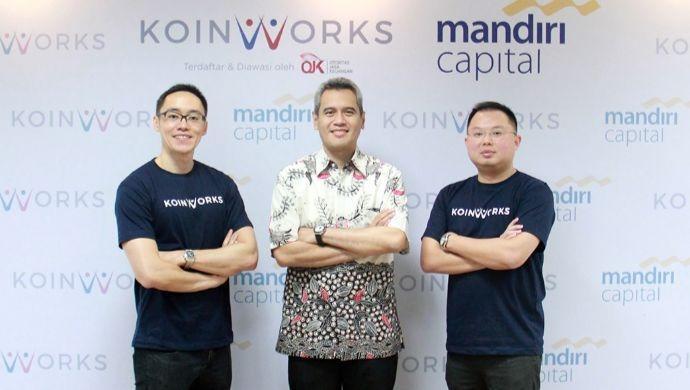Category: Funding Rounds
PayMongo, Philippine fintech startup aims to be a one-stop shop for Southeast Asia’s financial needs as it explores regional expansion
In April 2019, four co-founders, namely Francis Plaza, an MIT engineer; software engineer Jamie Hing II; business entrepreneur Luis Sia; and former Philippines Cabinet official Edwin Lacierda launched PayMongo to facilitate payments for businesses.
The fintech startup is backed by the likes of PayPal co-founder Peter Thiel, payment giant Stripe, and famed Silicon Valley accelerator Y combinator. PayMongo recently announced that it has raised $31-million in a Series B funding round to scale its operations and venture into more financial services. This brings the total investment of the three-year-old startup to nearly $46-million.
PayMongo CEO and co-founder Francis Plaza stated that “With this Series B, we will invest further in our merchant’s successes by giving them more means to move money seamlessly online” in a statement to Forbes. The injection of fresh capital will allow the company to build more products inter alia disbursements, capital lending, BNPL, subscriptions, and recurring payments. The firm has also stated its intention to expand its business beyond the Philippines in the broader Southeast Asian region.
In 2019, the startup raised $2.7-million in seed funding while the latest Series B round comes less than a year after PayMongo raised $12-million in a Series A funding round led by Stripe.
PayMongo said it has achieved a 4x growth in monthly transaction volumes and a growth of 3x in merchant base.
The company works with businesses of all sizes. However, the company targets micro, small, and medium-sized businesses, in particular, by enabling them to accept different forms of payments, including online wallets, credit cards, and over-the-counter payments.
Small and medium-sized businesses account for 99% of businesses in the Philippines and have been historically been underserved by traditional payment providers. PayMongo’s API delivers a consistent checkout experience by lowering the integration time to a few lines of code. Onboarding and fraud detection systems are also featured on its payment platform.
Indonesian fintech Akulaku Inc. secures $100m funding from Thai lender to expand its business in Southeast Asia
Following a $125-million funding in 2021 co-led by Hong Kong multi-asset investment firm Silverhorn Group, Akulaku managed to pull in $100-million from one of Thailand’s biggest lenders, Siam Commercial Bank plc. to expand its business in Southeast Asia.
In a statement, the company’s Chief Executive Officer said that funding raised would allow the Jakarta-based company to further expand its business’ geographical reach, specifically within its region of Southeast Asia.
From a fintech lending platform in 2016, Akulaku inc. has ventured into Buy Now Pay Later (BNPL) and consumer financing platform in Indonesia. The company claims that throughout 2021, it has distributed over $2.2-billion of credit to over 6-million users.
The company also operates an online wealth management platform as well as a mobile digital bank Neobank which is supported by its subsidiary Bank Neo Commerce and an e-commerce platform with BNPL services additional to the Akulaku virtual credit card and e-commerce platform.
In the fourth quarter of 2021, Akulaku’s banking subsidiary – Bank Neo Commerce, completed a public rights issue on the Indonesia Stock Exchange for approximately $175-million. Bank Neo Commerce formerly known as Bank Yudha Bakti also launched its mobile digital banking service in march 2021 and has over 13 million users before Akulaku took control of Bank Neo Commerce in October of 2021.
The $100-million strategic investment from Thai lenders SBC would provide the company with enough firepower to grow its core business in Jakarta as well as to grow its business within the region. Southeast Asia as a region has a population of 650-million people. This has seen a surge of fundraisings and startup deals as companies look to expand their businesses aggressively and move to win over consumers in one of the world’s fastest-growing digital markets.
KoinWorks, an Indonesian digital lending company, raises $108m from MDI, East Ventures
The Covid-19 period has actually allowed KoinWorks to surge forward in the right direction.
“At the beginning of the pandemic, we tried to step back and look into the situation. But we realized that it’s actually a mistake because our market kept growing amid the outbreak,” the company’s co-founder Willy Arifin told Tech in Asia.
The main types of companies that borrow from KoinWords are small and medium enterprises (SMEs) that have digital footprints. Online shops on Tokopedia and Shopee serve as examples. These kinds of companies have not been hit as hard by the restrictions caused by Covid.
In the past 18 months, the number of SMEs that have digital footprints has doubled from around 10 million to 20 million businesses, according to Arifin. This kind of surge normally takes five years if it weren’t for Covid. That being said, KoinWorks has kept its non-performing loan (NPL) ratio under 2%, which is significantly lower than traditional financial institutions.
During the pandemic, the company reached $15 million USD in loan disbursements per month, and logged positive cash flow. The firm also hit 1.5 million users at the end of last year.
The company raised $108 million USD in a series C funding round led by MDI Ventures. which is Telkom Group’s venture arm. Several existing investors such as Quona Capital, Saison Capital, AC Ventures, and Triodos Investment Management also took part in the round.
The investment comprised US$43 million in equity and US$65 million in debt capital. Since its establishment, the company has raised US$70 million in equity and around US$110 million in debt.
The company plans to use the funding to expand its existing workforce of 400 employees, who hail from Singapore, Indonesia, India and Vietnam. It also aims to triple its revenue and double the number of users by the end of 2022.
Founded in 2016 and based in Jakarta, KoinWorks has expanded from being a platform dedicated to peer-to-peer lending to launching several new features to expand its user base. The company realized that it wanted to help more budding founders from the start of their entrepreneurship journey after having to reject many entrepreneurs looking for loans from its lending platform. Hence, they launched a neobank feature that allows users to open business bank accounts directly from its app. It also provided learning material on how to manage an online business, promote it and communicate with customers.
When the company is comfortable with a business’s owner’s transaction history, it gives them a KoinWorks Neo Card which is a Mastercard virtual card that can be used to do any kind of online payments. The SME can also borrow money through KoinWorks’ lending platform.
They have also introduced an earned-wage access (EWA) service called KoinGaji and a gold investment feature called KoinGold.
As of now, the company does have an interest in going public. However, the founders have noted that they still want to focus on the firm’s home market and have no interest in expanding their business to other countries despite having developers from outside Indonesia.
“Half of the GDP (gross domestic product) of Southeast Asian come from Indonesia, we know where the money is,” Arifin stressed.
India’s Mamaearth is the latest unicorn after $52m funding
The parent company of baby and mother care brand Mamaearth, Honasa Consumer Pvt Ltd, has earned the title of unicorn after raising $52m USD in the latest funding round led by Sequoia, valuing it at $1.2b USD. The new funding round saw participation by Belgium-based investment fund Sofina Ventures and the UAE-based India-focused fund Evolvence Capital.
The round also gave its employees an opportunity to monetize their vested employee stock option plans. Honasa Consumer has also issued 839 compulsorily convertible preference shares (CCPS) at an issue price of Rs 33,85,049 to raise the aforesaid amount, according to the company’s latest regulatory filings. The company plans to use the funds to expand its portfolio of personal care D2C (direct-to-consumer) brands, product innovation, distribution and marketing, the company said in a statement on Sunday.
It also recently entered the skincare market with Aqualogica, a hydration-based skincare brand. It also plans to use the funds to grow in the beauty and personal care markets.
Founded in 2016 by Ghazal Alagh and Varun Alagh, Mamaearth offers 100% toxin-free and natural baby care, skincare, and hair care products. It has a product portfolio of more than 120 products and claims to have reached over 5 million customers in 500 Indian cities.
The company reported an annual revenue run rate of Rs 700 crore in the financial year of 2021.
They also recently acquired Momspresso, a woman-focused content platform, and its associated influencer engagement platform Momspressor MyMoney for an undisclosed amount.
Indonesian coffee chain, Kopi Kenangan, achieves unicorn status with $96m pre-IPO round
Indonesian coffee chain Kopi Kenangan has recently closed a $96.1 million Series C funding round from investors including Tybourne Capital Management, Falcon, and B Capital Group.
The round consisted of both primary and secondary transactions. According to industry sources, this Series C round is very likely to be Kopi Kenangan’s last financing before an initial public offering.
The coffee chain raised $50.2 million in primary capital as part of the round, per its filings with Singapore’s Accounting and Corporate Regulatory Authority.
Tybourne Capital that is based in Hong Kong contributed $20.7 million, while Falcon Edge invested $16.6 million. The rest of the funding came from Kunlun Group, B Capital and British Virgin Island-registered Kostal Investments and Bravo Castle.
Investors bought the startup’s preference shares at $3858.56 apiece. Based on its fully diluted capitalization, including its employee share option plan, the coffee chain is now valued at $1 billion and considered a unicorn.
The Series C investors also bought shares worth $45.9 million from existing shareholders as part of the round. Sellers include co-founder Edward Tirtanata, Cynthia Chaerunnisa, James Pranant0, and early investor Alpha JWC Ventures.
Tirtana who is the company’s CEO, got nearly $5 million from the secondaries, while chief development officer Prananto got $6 million. Chaerunnisa who is their chief marketing officer earned $12 million. Venture capital firm Alpha JWC received almost $23 million for paring its stake in Kopi Kenangan.
In November, DealStreetAsia reported the company’s plans to raise about $100 million in a Series C round backed by Falcon Edge at a near unicorn valuation.
Kopi Kenangan was launched in 2017 by Tirtanata and Prananto and currently operates over 560 coffee outlets in 32 cities across Indonesia. The company plans to expand to Thailand, the Philippines and Malaysia.
They have also branched out into other ventures, owning Chigo fried chicken, Cerita Roti bread and Kenangan Manis cookie chains. It also operate the Rumah Kenangan eatery and Kenangan Heritage, a premium coffee shop.
Kopi Kenangan launched its food delivery app in 2019 and claim to have more than 1.8 million monthly active users. The company reported a revenue of $22.08 million and a profit of $130,000 in 2019.
There have been rumours of a potential listing in Hong Kong, an exchange that has reportedly been attracting attention from several Chinese tea brands, including ChaBaiDao, Gu Ming, Heytea and Lelecha, after bubble tea chain Nayuki Holdings’ $654 million IPO in June.
Due to some amendments to the rules for the Indonesia Stock Exchange that aims to attract local startups, Kopi Kenangan might also consider their home market as a potential listing destination.





